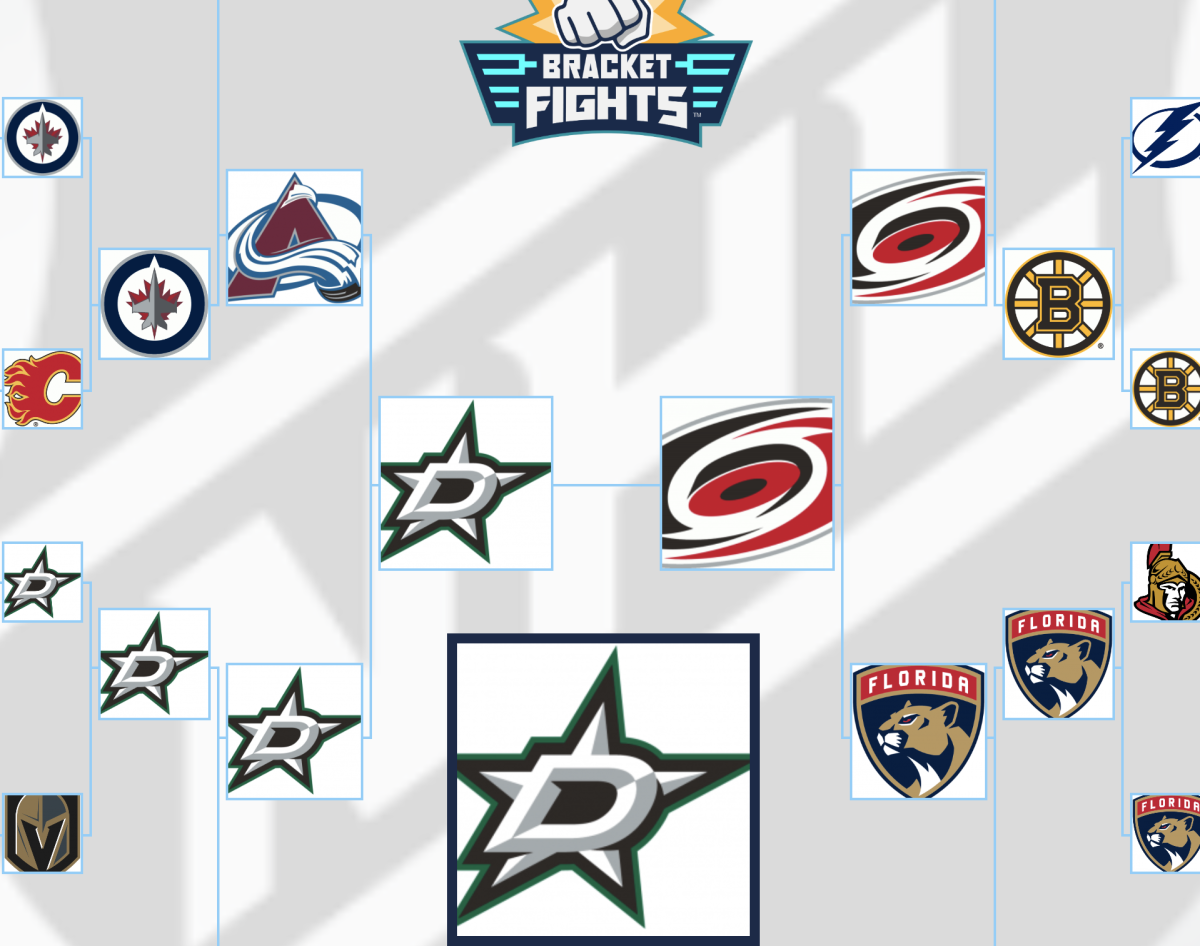Movies matter: how movies influence incel culture
November 17, 2022
“American Psycho,” “Fight Club,” “Taxi Driver.” Patrick Bateman, Tyler Durden, Travis Bickle. What do these three characters and movies have in common? Incels.
There are more movies and characters that fit into this sort of “incel holy grail of film,” such as the movie “Nightcrawler” or the character Walter White from “Breaking Bad.” But what attracts incels to Patrick Bateman’s inner monologues, Tyler Durden’s anarchy, and Travis Bickle’s crippling loneliness? And why are these three movies kinda good?
Webster’s dictionary defines an incel as “a person (usually as man) who regards himself or herself as involuntarily celibate and typically takes extreme resentment and hostility towards those who are sexually active.” Yes, female incels exist, and they are called “femcels.” The femcel film canon is different from the incel one with movies like “Black Swan,” “Gone Girl,” “Girl Interrupted” fitting into the niches of femcel culture. But femcels are typically less violent and turn their hatred inward instead of outward like the incel. Regardless, both communities share one thing in common: a deep insecurity within themselves. Due to incels stereotypically expressing their frustration outward, they tend to be more alarming to others. Patrick Bateman, Tyler Durden and Travis Bickle all take direct actions to “fix” their problems or fill some sort of void in their lives. This fits into ideals of masculinity of what a “real” man is: he takes action. He is assertive, never passive and he takes control of his life.
“American Psycho” takes place in 80s wall street, Patrick Bateman (Christian Bale), the main character, is a caricature of the 80s yuppie. The yuppie is shortened slang for “young urban professional,” and the yuppie is often characterized as someone obsessed with material objects and financial success. In the movie we see several incidents of Patrick and the world he lives in having an obsession with material objects, such as the infamous business card scene with all the characters trying to upstage each other’s business cards that all somehow have “CEO” visible. Bateman has many infamous quotes in the film that seems to resonate with people: “I want to fit in”; “You can always be thinner, look better”; and “I can hide my cold gaze and you can shake my hand and feel flesh gripping yours and maybe you can even sense our lifestyles are probably comparable: I simply am not there.”
It’s no secret we are living in late stage capitalism surrounded by the idea of hyper-individualism, consumerism and the desire to fit in with others. Consumerism is the idea that the more material possessions we own the happier we will be. In the 80s consumerism was rampant, and today it seems to still be a problem but somehow even worse with the use of social media where we can see the lives of our peers and complete strangers on a more personal level. Patrick Bateman is a man who lives in this society I just described, and he seems to have it all figured out: a beautiful girlfriend, a nice job, a good apartment. But in a capitalist society we are always chasing the desire to acquire more and it’s enough to drive anybody crazy which is what it did to Bateman. Bateman’s insanity due to hyper consumerist society is relatable to many today, maybe not to the point where we become serial killers but still very relatable. Bateman also uses women and rough abusive sex as way to take out some his frustrations as well. Bateman’s female victims are never given the luxury of being treated as an equal on his level only as sex objects to be used and then disposed. Bateman seemingly unknowingly falls into the trap that short term bursts of dopamine pleasure is the key to filling a void within his life.
“Fight Club” takes place in the 90s with a generation that has no purpose or place, no Great depression, no Great war. Instead a generation spent pumping gas, waiting tables and slaves to white collar jobs. This sounds similar to our world today. Generation Z is living in a world that is collapsing due to capitalism failing, climate change rising and political divide being more present than ever. In the 90s generation, X were faced with the pushback of the polished hyper-consumerist society of the 80s Reagan era. Countercultures were all the rage, such as gangster rap and grunge along with the worry about Y2k towards the late 90s. In fight club Tyler Durden (Brad Pitt) counter culture. The narrator of Fight club struggles with insomnia and works an unfulling office job; he wastes his time ordering things from the Ikea catalog for his apartment.
Tyler Durden believes that material possessions are meaningless; he believes only after we lose everything is when we are free to do anything. As Durden says you are not your bowel cancer, you are not your grande latte, you are not the car you drive and you are not your khakis. Durden clearly has some anarchist and communist views. Durden wants a world where our lives don’t revolve around consumerist goods. In the film this all comes to head with a plan Tyler calls “Project mayhem.” Project mayhem’s goal is to destroy modern civilization by messing with corporate America. The final goal of project mayhem is to blow up all banks in America to set a new world order where everyone’s debts are erased. “Fight Club” also has themes surrounding fatherhood and masculinity. Durden famously says the quote “We’re a generation of men raised by women. I’m wondering if another woman is really the answer we need.” According to Ifstudies, boys raised in single parent households are more likely to deal with behavioral problems. The members of fight club look up to Durden as a father figure following every command he makes without question. A lack of purpose and emasculation is what seems to be the root problem for the narrator in “Fight Club.” The emasculation leads the narrator to fill less accomplished in his life. This lack of accomplishment is a result of a patriarchal society that we live in that expects overwork themselves and get the girl. These struggles seem to translate to the modern man as well.
“Taxi Driver” follows Travis Bickle (Robert De Niro), a man who has returns as a Vietnam War veteran who has been honorably discharged and now works as a taxi driver. Bickle is disconnected from the rest of society; he often works long hours in any part of New York he can, even the parts he hates. Bickle wants a sense of somewhere to go in his life. He’s lonely: “Loneliness has followed me my whole life. Everywhere. In bars, in cars, sidewalks, stores, everywhere. There’s no escape. I’m God’s lonely man…” He is also often disengaged but observant about the people around him. When out with his coworkers Bickle sits on the far end often spilling out of the booth he is sitting. This shows how he really can’t connect to his fellow man. Bickle can’t really seem to understand women either as he grows infatuated with a woman by the name of Betsy (Cybill Shepherd). He sees her as something holy in her white dress against the dirtiness of the city. Bickle develops a relationship with her that ends when he takes her to see a raunchy movie. She leaves him, and Bickle tries to win her back by calling her multiple times with no answer. He sends her flowers that she just ends up returning to him, he then goes to her job to confront her but gets kicked out. When he finally realizes he will never get Betsy back, he has this to say about women: “I realize now how much she’s just like the others, cold and distant, and many people are like that, women for sure, they’re like a union.” Bickle doesn’t want to be stuck as another cabbie like his coworker wizard who just goes through the motions.
As a result, he sets out on a quest to better himself physically- not mentally like he desperately needs. The things he does to physically better himself are doing fifty push ups and pull ups in the morning, eating no more bad foods and buying a gun. In Bickles own words, every muscle on his body must be tight. Many people today in our society set out to better themselves physically but never really doing much mentally. But it’s understandable. It’s far cheaper to buy a gym membership than trying to go through the financial and/or logistical gymnastics of trying to get a therapist. Bickle’s plan is to get the pimp that took the 13 year old girl named Iris and kill presidential candidate Charles Palantine. By the end of it all, Bickle kills the pimp and others who were trying to get with Iris, but never gets Palatine. Iris is returned to her parents, and her parents give their gratitude to Bickle. His action of killing the pimp is put into the local newspaper, and he is seen as a local hero. Bickle returns to his job as a cabbie and not much about his life changes. He gives Betsy a ride in his taxi with not much happening between them and the movie ends there. Bickle’s story ends with no clear message or conclusion. Bickle remains as God’s lonely man.
These three movies are often seen as an introduction to film for many. So then why does it seem like incels latch onto these films? Each movie deals with messages of how men respond to society. For Bateman being the top dog and fitting into society is seen as the answer for Durden blowing up society completely rebuilding a new one seems to be the answer and for Bickle breaking out of a constant boring loop is the answer. Incels see their desire to fit in with Bateman, their need to tear down society in Durden and their loneliness in Bickle. So does liking these films or relating to these characters make someone an incel? No, of course not but y’know what does? Unapologetically perpetuating misogyny.






































